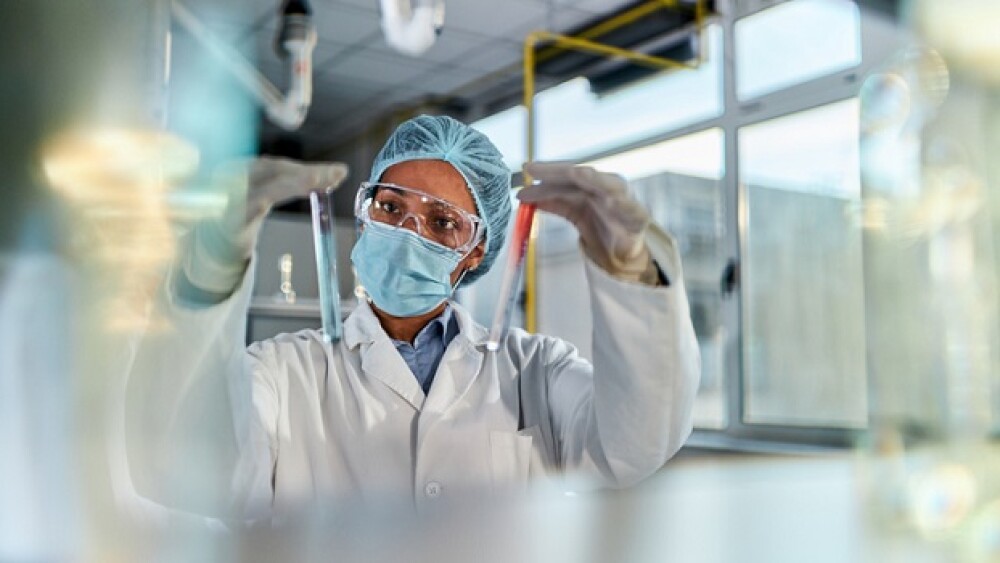Finding chemistry jobs in the life sciences industry doesn’t have to be difficult. Discover the top chemistry job options in the life sciences in our comprehensive guide.
Finding chemistry jobs in the life sciences industry doesn’t have to be difficult.
Having a chemistry degree or experience in the chemistry field can set you up to successfully work in various parts of the life sciences industry, and the Bureau of Labor Statistics estimates that 17% of chemists work in the research and development sector in physical, engineering and life science jobs.
Here’s a look at a few examples of chemistry jobs that are available and growing in the life sciences industry.
Chemistry Job Options in the Life Sciences
Overall employment in the life sciences industry is expected to grow 7% by 2031, meaning there will be plenty of chemistry jobs and biology jobs available for the incoming workforce.
The current workforce will age out and be replaced by students and recent graduates who studied chemistry, biology and physical science. As technology continues to expand and change our ways of work, additional positions will also open up to keep up with increased demands and technology upkeep.
Below, you’ll find a list of chemistry jobs that are specific to the life sciences sector.
Biological Technician
Biological technicians, also called laboratory assistants, are needed in every branch of science. Chemists with this job will help maintain laboratory equipment and instruments. They may also work with chemical engineers to design, perform, evaluate and document data that arise from the research on chemical processes.
The chemical processes being researched can range from any number of the daily chemical reactions that take place. In life sciences, the chemical reactions being studied deal specifically with the safety and health of consumers and the environment. Research into medicines, food and drugs, animals and microbes are all possible for a laboratory assistant with a history in chemistry.
Chemical Ecologist
Ecology is the branch of biology that deals with the relations of organisms with one another and with their physical surroundings. Chemical ecology integrates this with chemistry to study the chemical interactions between organisms and their environment.
Chemical ecology has been used to understand terrestrial biomes, animal behaviors, hormone responses and many other unspoken relationships in our environment.
Chemical Engineer
Chemical engineers work in more fields than just oil and manufacturing. There are also chemical engineering jobs in industries like food and beverage, textiles, paper, rubber, plastics, biomedical devices and many others.
According to the BLS, about 10% of chemical engineers work in research and development in the physical, engineering and life science sectors. Chemical engineers develop and design chemical manufacturing processes as it applies to many mediums. Within life sciences, chemical engineers might work to understand or simplify the production of energy, food, clothing, electronics and paper.
Understanding the process of manufacturing these goods is central to the principles of chemistry. Chemical engineers will study how this manufacturing process works and how it affects the consumers and environment.
Clinical Specialist
Life sciences includes the study of all living organisms, while chemistry deals with the structure and reactions of substances. These two areas intersect when it comes to pharmaceutical drugs and treatment therapies. That’s where clinical specialists come in.
Clinical specialists work in laboratories to collect and test samples that will evaluate safety, efficacy and benefits of medical products like drugs and treatments. The biological samples will also be tested for toxins, contaminants or any other factors that might affect a patient’s health.
Environmental Scientist
With a background in chemistry, you already know the fundamentals when it comes to evaluating chemical processes. As an environmental scientist, you’ll use your understanding of those chemical processes to relate to the environment.
Environmental scientists test for pollutants, contaminants and waste in field experiments and study the substances in nature that may be having a negative effect on the public’s health. In this field, you’ll also focus on pollution and waste in regards to reducing its impact and finding chemical applications to keep the environment clean.
Microbiologist
Instead of working with large living things, like humans or animals, you could use your chemistry chops on the smallest living things – microorganisms. Microbiologists study fungi, bacteria, algae, viruses and parasites to understand their life cycles and their effect on others.
Just like any other living organism, microorganisms also deal in chemical reactions and can be studied through a chemistry-informed lens. Innovations in epidemiology and immunological research also play a large role in working as a microbiologist.
Research Analyst
Because we are always using science to learn more about our surroundings, there is always more research to be done. Research analysts with a chemistry background might focus their efforts in the life science sector by researching biological processes for industrial applications and commercial use.
Research analysts are important in laboratory settings because they gather, analyze and evaluate data to improve understanding and efficiency.





